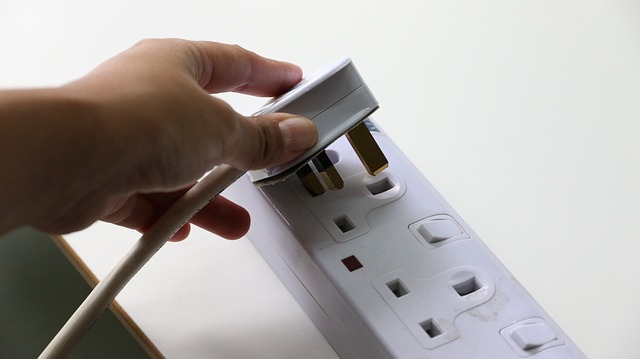Residential Electrical Safety: The Essentials

Residential Electrical Safety: The Essentials
While your home symbolizes a safe environment, keeping it that way requires a bit of effort and some know-how. Among the top dangers in any home-owner faces is electricity. Residential electrical safety ensures protection not just from electrical shocks, but from house fires, as well. It also ensures your devices have a stable power source, and that they can accommodate your daily needs in life, without risking or compromising your and your family’s safety. To ensure electrical safety throughout your home here are the essentials every home-owner needs to know.
Checking Electrical Switches and Outlets
Electrical switches and outlets are the most used electrical items around your home. That’s why it’s important to check them regularly and ensure they are running well, and not becoming a safety issue. If you notice any substantial damage you will need to replace your switches and outlets. Additionally, you can choose builder’s grade outlets, since they have a reduced chance of malfunction and are more durable over longer periods of time.
Unplugging Battery Chargers
It may seem like a regular occurrence, but leaving your smart phone battery charger plugged into an electrical outlet can become a safety threat. Even though it may not be charging any batteries or devices, a plugged-in charger still drains electricity. By unplugging it after each use, you improve electrical safety and lower your monthly electrical bill by a small amount.
Testing Your Smoke and Fire Detectors
Experiencing a house fire remains a threat in your home, so it is important to test your smoke and carbon monoxide detectors. By testing them, you can figure out whether they are working properly, and if the batteries are fully charged. Another issue with these devices are the electrical components inside them. Over time, the sensors and wiring in your smoke and fire detections systems can become faulty, and if that’s the case, you should replace them immediately.
Installing Ground Fault Circuit Interrupters (GFCI)
GFCI outlets are major electrical safety device, because they stop power flow in case of an electrical shock. GFCI are best installed in rooms where there’s more water and it can come into contact with electrical wiring – most prominently bathrooms, kitchens, basements and garages. In case you do not have a GFCI and there’s a power surge, cut the power to your home and acquire the help of a licensed emergency electrician. Additionally, a GFCI should be your number one investment in case your home isn’t yet protected.
Regulating Wattage
Regulating wattage requirements ensures residential electrical safety. Common lighting fixtures are all rated according to their optimal wattage requirement, which allows you to follow them when choosing light bulbs. Exceeding the wattage can overpower your lighting fixture, and in a best case scenario only short circuit you’re wiring, while in worst cases it can cause fire. Additionally, you should also be mindful of the wattage requirements of your devices, since lower-quality extension cords can support only an exact amount of power.
Upgrading Your Service Panel
The main hub of your residential electrical system is the service panel. While modern homes feature reliable system panels, responsible for distributing between 120 and 240 amps, older homes are equipped with outdated panels which can only distribute 64 amps. Upgrading the service panel ensures you have a reliable electrical system throughout your home, and minimizes the chance of the tripping, which is one of the main reasons for device malfunction.
Inspecting Wiring
In addition to the service panel, you should also seek a professional assessment of your home’s wiring. Faulty or bad wiring inside your electrical system can result in circuit shortages, power outages or wire tripping. Most homes have copper wiring which can wear out over time, and can easily get torn in case of simple DIY repairs to your home. If you’re unsure of where the problem lies, contact an electrician and he can assess whether you will need to replace all the wiring or just the segment causing the problem.
Remember, the number one cause of electrical harm and danger to your well-being are unprofessional and unskilled repairs. Make sure to never fix electrical problems by yourself, and instead always acquire services of licensed electricians. Along with simple upgrades, improvements and regular tests, this ensures residential electrical safety throughout your home.